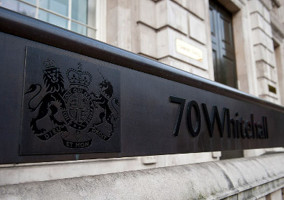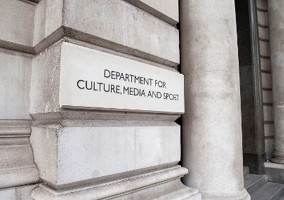Kirsty Weakley reflects on some recent government announcements and considers what it says about how seriously the government takes charities.
Last week we had the good, the bad and the ugly in terms of government decisions or announcements relating to the charity sector. Rather predictably the bad news has so far overshadowed the good and the ugly, which actually risks driving the concerns of charities and the priorities of government further apart.
Almost a year ago, I wrote following the Conservative Party Conference, about a renewed sense of optimism about the relationship between charities and the government. Number Ten had made positive noises about the sector appointed a new charity adviser, Charlotte Lawson, who was broadly welcomed by the sector. And progress had been made in altering a potentially damaging ‘gagging’ clause in grant agreements, which could have prevented charities from speaking out.
But fast forward to today and concerns about the sector’s voice being stifled are again front and centre. Lawson has resigned and does not appear to have been replaced. Things are apparently so bad that the former minsiter for civil society, Rob Wilson, has been urging charities to get closer to the Conservative Party.
So what do last week’s announcements tell us?
The bad
Starting with the bad news, the Cabinet Office bluntly rejected calls to bring forwarded amendments to the Lobbying Act, as proposed by a review conducted at its request by Conservative peer, Lord Hodgson.
Its brief statement angered charity representatives, who have been urging reform for some time.
Tamsyn Barton, chief executive of Bond, described it as “deplorable”. Vicky Browning, chief executive of Acevo, said the restrictions were “deeply intimidating”. And Sir Stuart Etherington, chief executive of NCVO, said the Cabinet Office had behaved in an “unacceptable” manner.
Comments from Twitter indicated that outrage was indeed spread far and wide. Charities clearly feel that they had not been listened to and that no-one cares – the Cabinet Office couldn’t even be bothered to attach the minister’s name to the statement.
There is a tiny glimmer of hope for charities, with charities minister Tracey Crouch issuing a statement late on Friday afternoon, in an attempt to reassure the sector that it is valued, and a promise to help make sure that the rules are “well understood”.
But she’s been left with a difficult job. While confusion about the rules was part of the problem, there are also fundamental flaws in the Act that mean the sector is unlikely to be satisfied until it gets some tangible reform.
The ugly
Local Chariities Day is back. Ok it may be a bit harsh referring to this as ugly – though the logo is pretty questionable.
But it is not clear whether this is good or bad news. So far we don’t know whether there will be anything in the way of free training programmes as there was last year (we have asked, but not had a reply).
Additionally the timing of the day is just odd. It’s pretty much the last working day of the year for many, 15 December, and people’s minds are likely to be elsewhere
There are some pretty big pressures facing small charities, so if the day is used to outline how the government will, for example, reform commissioning practices or beef up the Social Value Act, that will be good news.
But we’ll have to wait and see if that is the case – at the moment all DCMS has committed to is celebrating and sharing stories. Small and local charities deserve more than an PR stunt from this government.
The good
And finally the good news.
Ok so it’s niche technical secondary legislation news. But it is something that the real wonks in the sector have been eagerly awaiting.
After years of delays, secondary legislation has been produced to enable incorporated charities and community interest companies to convert to charitable incorporated organisations, and now needs to be approved by both the House of Commons and the House of Lords. As long as it is approved, phased implementation is scheduled to begin from January 2018.
Unlike incorporated charities, CIOs do not need to register and file with both the Charity Commission and Companies House, saving them time and money.
The Commission expects up to 12,600 existing incorporated charities to make the switch over ten years and it’s something charities ask us about a lot, so it's clearly seen as important.
In other news, the government launched an Inclusive Economy Partnership to bring together businesses and charities to find new way to tackle social challenges. Grant funding is also on offer.
And there is a new £4m fund to widen volunteering opportunities for the over-50s.
Does the good outweigh the bad?
It’s hard to say whether the good measures outweigh the bad. They deal with very different areas of policy. And a big caveat to many of the positive announcements is that action is still needed to make them happen.
But it would be incorrect to believe that the concerns of the sector are entirely off the agenda, or to characterise the current situation as a widespread crisis.
The Cabinet Office may have slammed the door shut on discussions about the Lobbying Act for the time being, but there are still many areas where the sector can have influence – don’t let frustration and anger about one piece of legislation cloud everything else.
Related articles










